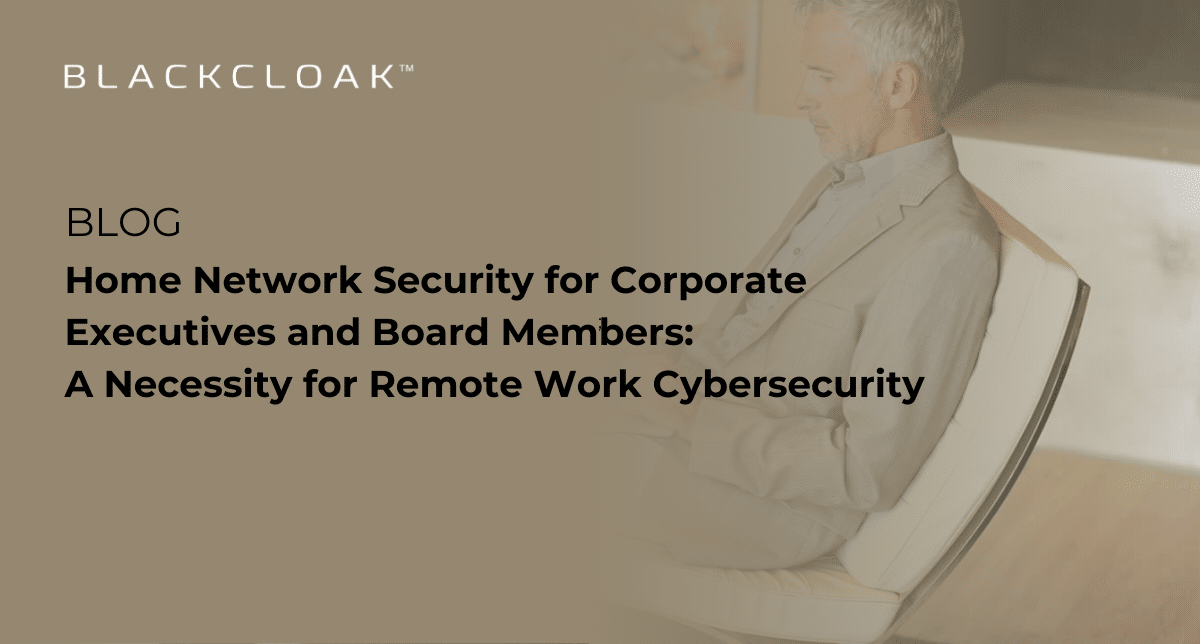Home Network Security for Corporate Executives and Board Members: A Necessity for Remote Work Cybersecurity

The importance of robust home network security for board members and corporate executives cannot be overstated. As the trend towards remote work continues to grow, the lines between home and office network security have blurred, presenting unique challenges and vulnerabilities that must be addressed to safeguard sensitive corporate information.
The Intersection of Home and Work Network Security
The shift towards working from home has significantly increased the potential attack surface for cyber threats. Corporate executives and board members often handle sensitive data and make high-stakes decisions, making their home networks a prime target for cybercriminals. A compromised home network can lead to unauthorized access to confidential corporate information, potentially resulting in significant financial and reputational damage to the organization.
Unique Vulnerabilities of Home Network Cybersecurity
Home networks are typically less secure than corporate networks. They often lack advanced security measures such as robust firewalls, intrusion detection systems, and regularly updated anti-malware software. Additionally, the use of personal devices for work-related activities, known as Bring Your Own Device (BYOD), can introduce further risks if these devices are not properly secured and monitored.
Additionally, since home networks don’t often carry the same level of protection as corporate networks, they have become a frequent target of cybercriminals.
Implementing Strong Security Protocols at Home
To mitigate these risks, it is imperative for board members and corporate executives to implement strong security protocols for their home networks. This includes using secure Wi-Fi connections with strong encryption, ensuring all devices connected to the network are updated with the latest security patches, and using Virtual Private Networks (VPNs) for accessing corporate resources.
Educating Executives and Board Members
Strong anti-malware software and firewalls aren’t enough to protect CEOs and board executives’ personal devices from the significant cybersecurity risks they face. Education plays a crucial role in home network security. Executives and board members must be made aware of the potential risks and trained in best practices for securing their home networks. This includes recognizing phishing attempts, using strong, unique passwords, and understanding the importance of regular software updates.
The Role of IT Departments and Security Firms with Remote Work Cybersecurity
IT departments and specialized security firms like BlackCloak.io play a vital role in extending corporate security measures to the home networks of executives and board members. They can provide tailored solutions, ongoing monitoring, and rapid response to any security incidents, ensuring that both home and corporate networks remain secure.
In conclusion, the security of home networks for corporate executives and board members is a critical aspect of the overall cybersecurity posture of an organization. As remote work becomes increasingly prevalent, it is essential to extend corporate security measures to home environments to protect against potential cyber threats. By implementing robust security protocols, educating key personnel, and leveraging the expertise of IT departments and security firms, organizations can significantly reduce their risk exposure in this new era of remote work.
If you’re interested in learning how BlackCloak can help your executives and board members maintain robust remote work cybersecurity, request a demo to discover more today.










